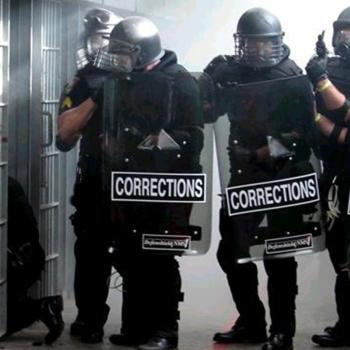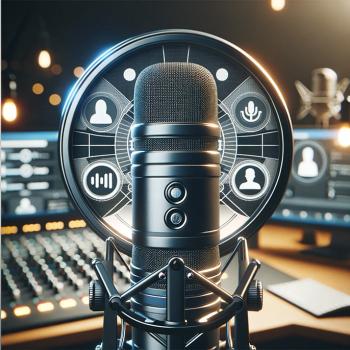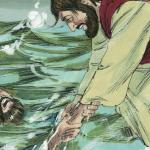The events in Charlottesville are overwhelming, infuriating, depressing, sad, and scary. Processing everything going on will take time, patience, and community. And that last part, community, is where we can find comfort, help, and motion forward. (Here is a resource that can help us process these events and create community.)
We need time to lament, to reflect, to call out injustice, to scream, to listen to music, and to tremble. But the question I have gotten the most these last few days, is what can I do?
I am certainly no expert in this! (Here are a few experts: Robyn Henderson-Espinoza, Mickey ScottBey Jones.) But as someone who is getting more involved in resistance, let me share with you my journey.
1) For me it started with learning more about the unspoken things that exist and are shaping the world around us. One way we talk about this is unconscious or implicit bias. These are the underlying, often hidden narratives that help us make decisions and respond to the world around us. (We would be paralyzed without this function in our brain.)
Unconscious bias affects our views on everything. From race and gender, to religion, family practices, how we treat those who are different with us, and how we make decisions. One of the ways that we start to uncover the larger narrative is to look at how systems promote bias and then learn how to identify bias when we see it happening. Racial bias is one of the places where we see this in clear and pronounced ways.
Nadia Bolz-Weber did a great job of laying this out in her sermon responding to #Charlottesville. She succinctly laid out several well documented effects of systemic and unconscious bias in relation to racism.
1. African Americans and whites use drugs at the same rate and yet the incarceration rate for African Americans for drug related crimes is 6x that of whites. As a former drug user – if I were black I’d be 6x more likely to have been arrested and thrown in prison, and yet not 6x more likely to have broken the law. Slavery was a cash cow for white folks as are private prisons today.
That is white supremacy.
2. Redlining was a common practice a generation ago where African Americans could not get loans to buy homes. As a white person I am significantly more likely to have parents and grandparents who owned their own homes – which means I am more likely to inherit money – which means I am more likely to own a home which means my children are more likely to inherit money.
This is White Supremacy.
3. When I see a police officer I assume they are there to serve and protect me. When my black friends see a police officer they assume they are there to harm them.
This is White Supremacy.”
(Nadia Bolz-Weber, The On-Going Storm, August 14, 2017)
Confronting these unspoken messages is hard work. “How do I fight against something I hate and yet which has loved me back my whole life?” (Nadia Bolz-Weber) But we can do it and we need to do it.
My own entry point into this topic was through “The Hidden Brain” by Shankar Vedantam. This is both a book and a Podcast on NPR. (Which my husband shared with me after encountering it at work.) I think this is an accessible entry point into learning about unconscious bias.
2.) After learning about unconscious bias, I started to interact with people in my community doing the work of changing these systems. For me, this was helped along as part of running Brew Theology. I help run a community that meets in pubs and talks about G(g)od, philosophy, and social justice. One of the ways we work to expand our own experience of life is to bring in speakers from different traditions and backgrounds. Not only do we bring in people from different religious traditions, but also interfaith workers, academics, and activists who are on the ground doing the work.
- Our interaction with the Interfaith Alliance of Colorado exposed me to people who work on building bridges between faith communities and work on legislation to change the systems in our communities, and state. They also provide education about how these systems work and how you can get involved.
I would encourage you, if you want to learn more about the systems around you and get involved with groups that are making a difference, to look up the Interfaith Alliance near you. If you are in a smaller town, see if your pastor can connect you with the faith leaders/charity leaders in your area.
- I was also challenged by the work of Miguel de la Torre. He is an academic at Iliff School of Theology and does significant work with immigration. His depth of knowledge of the subject helped me to better understand the complexity of the issues surrounding immigration. You can listen to that conversation here.
Look around at the colleges near you in your community and see what work is being done. You never know who might be living right around the corner. You may have a specialist in race relations, immigration, feminism, gender studies, or the history of imperialism that you can go listen to, and maybe even invite to coffee. We have found that people want to share what they know. All you have to do is ask.
- Another person that helped me on my path was Anne Dunlap. She taught me about reading scripture as resistance. She shared with us at Brew Theology about reading Romans as Resistance. This was eye opening to me. I saw the text in a way I never have before.
She opened that door for me. You can hear her on our podcast to get a taste of what this kind of reading is like. How we read and understand scripture is one of the most important issues of our time if we are going to address these deep social and theological issues.
3) Do something; as you are ready, at your own pace, in your own time. That seems like a lackluster conclusion, but it’s in recognition of the fact that we’re not all in the same place. For some of us, this might mean standing up to a coworker making a racist joke and saying “no”, or even just refusing to laugh. It might mean choosing to share carefully chosen articles about political issues on Facebook. It might mean talking with your immediate family about how they feel about these issues.
It could mean finding a different faith community. Or speaking up in the one you are in. It will definitely mean figuring out how to integrate these new awarenesses into your own faith understanding. (And that will take time, patience, and reflection.)
At some point, you may be ready to step out more boldly. To change your social media icon to something that makes a statement. To stand up online when you see demeaning and harmful comments (this is not for the faint of heart and not everyone is made to do this!). To step outside your house in a resistance t-shirt. To go to a rally and cheer from the sides, or march down the street.
Each of things are important and we each get to use our skills and positions in appropriate ways. What will make the most difference in your circles of influence? I am personally in a more bold space right now, but it has taken years to get here. And I am still learning what it looks like long term to stand up against hate and strive for justice.
This is how my journey is evolving. It’s been about 9 years of awakening, with more of the specific work done in the last 3 years or so. And I am nowhere near done (not that we ever are). I encourage you to take the first step. Any step toward greater understanding and action.
Please know that you are not alone. So many of us are on this journey in a new way right now. It’s hard. It’s frightening. And it’s vulnerable. But this is how change happens. And you can be a part of it.
Some inspiration from adrienne maree brown. (From Emergent Strategy)
“We must imagine new worlds that transition ideologies and norms, so that no one sees Black people as murderers, or Brown people as terrorists and aliens, but all of us as potential cultural and economic innovators. This is a time-travel exercise for the heart. This collaborative ideation–what are ideas that will liberate all of us?
The more people that collaborate on that ideation, the more that people will be served by the resulting world(s).” (p19)“If love were the central practice of a new generation of organizers as spiritual leaders, it would have a massive impact on what was considered organizing. If the goal was to increase the love, rather than winning or domination a constant opponent, I think we could actually imagine liberation from the constant oppression. We would suddenly be seeing everything we do, everyone we meet, not through the tactical eyes of war, but through eyes of love. We would see that there’s no such thing as a blank canvas, and empty land or a new idea—but everywhere there is a complex, ancient, fertile ground of potential.” (p9-10)














